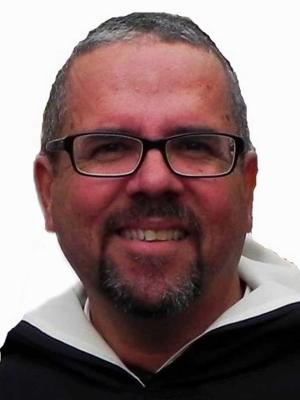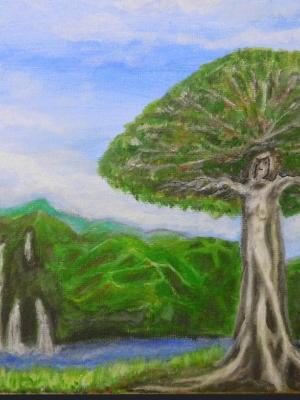Remain in my love in our Common Home
We’ve come a long way toward protecting our common home, but the journey ahead needs more. On the 6th anniversary of Laudato Si, we see more clearly the prophetic nature of this document. Catholic communities everywhere celebrate the sixth anniversary of Laudato Si'. Our faith calls us to do more together.
The responsorial psalm today we hear "all the ends of the Earth have seen the salvation by our God...break into song, into praise." (Psalm 98: 3-4). Yet, often, our world cries out not into song but in pain. So join Pope Francis and take the next step in our "Laudato Si" journey. Commit to an action that grows your response to “the cry of the earth and the cry of the poor.”
Pope Francis states,
I urgently appeal, then, for a new dialogue about how we are shaping the future of our planet. We need a conversation that includes everyone, since the environmental challenge we are undergoing, and its human roots, concern and affect us all. … As the Bishops of Southern Africa have stated: 'Everyone’s talents and involvement are needed to redress the damage caused by human abuse of God’s creation.' All of us can cooperate as instruments of God for the care of creation, each according to his or her own culture, experience, involvement and talents (Laudato Si §14).
Let us consider this reflection (based on the gospel John 15:9) and artwork by our brother as we consider our commitment together:
Love in our Common Home
by Fray Carlos Alberto Rodriguez-Villanueva, O.P.
Comunidad Santisimo Rosario, Yauco, Puerto Rico
Historical time is marking our personal and community history. The time of our Common Home demands that we assume responsibility in the care of Creation. Our Common Home, Creation, as a metaphor in this recreation of the painting that I have prepared for the Sixth Week of Easter, is an invitation to love in our Common Home.
This sister cries out for the damage we cause her because of the irresponsible use and abuse of the goods that God has placed in her. We have grown up thinking that we were its owners and rulers, authorized to plunder it. The violence that exists in the human heart, wounded by sin, also manifests itself in the symptoms of disease that we notice on the ground, in the water, in the air and in living beings. For this reason, among the most abandoned and mistreated poor, is our oppressed and devastated land, which "groans and suffers the pains of childbirth" (Rm 8,22). We forget that we ourselves are earth (cf. Gen 2,7). Our own body is made up of the elements of the planet, its air is what gives us breath and its water vivifies and restores us. (Pope Francis, Laudato Si (LS), 2)
Sister Creation groans and suffers pain from the treatment we have conferred on her, especially from the industrial revolution to this today. We observe it rooted between earth, water and sky. We perceive her raising her prophetic voice from the tree that feeds us and purifies our air that we breathe. Playing and yet screaming in pain in the waterfalls, waterfalls of every country in the world. She continues her march towards the body of water, river, sea, ocean.
We wonder what time it is in that landscape of the Common Home. It is the hour of love under the Common Home. It is time to stop to contemplate, to collaborate and to offer remedies to protect our Common Home. It is time to love Creation. Love her with gestures that heal her, comfort her, and allow her to carry out the task that God-Father gave her in that beautiful passage from Genesis.
That sin that Pope Francis alludes to in Laudato Si manifests itself in the symptoms of illness that we notice on the ground, in the water, in the air and in living beings. For this reason it is difficult to identify the time of the landscape of the painting.
In this Sunday's Gospel, Saint John introduces us to Jesus in that discourse on the vine and the branches. In the Gospel passage it is Jesus who speaks as the true vine. It is Jesus who speaks together with the Creator Father.
Remain in my love. The one who remains in your love will live and bear fruit. The metaphor or personification of Jesus and the true vine is made concrete in love. We are all part of Creation, part of our Common Home. We must remain in it to achieve the common good. Our Common Home invites us to love it.
The human figure of the tree is not only a She, it is also a He. Both, as human beings, we root ourselves in the created world and with God at our side we care for the common home from love. Therefore, the ability to transform the reality of the human being must be developed on the basis of the original gift of creation by God. (For Francisco, LS, 5)
To love in our Common Home is to throw the garbage into the corresponding place; to enjoy the beaches, rivers and respect these environments because they are things that belong to all in our Common Home.
Remain in my love, as my Father and I remain in love. On this sixth Sunday of Easter 2021 we are invited to love under Creation, united to Creation we will bear fruit like the disciples of Jesus.
Pope Francis brings us in Laudato Si the saint of ecology and contemporary of Santo Domingo de Guzman, St. Francis of Assisi. I believe that St. Francis is the quintessential example of caring for what is weak and of an integral ecology, lived with joy and authenticity. He is the patron saint of all those who study and work around ecology, also loved by many who are not Christians. He manifested a particular attention towards God's creation and towards the poorest and most abandoned. He loved and was loved for his joy, his generous dedication, his universal heart. He was a mystic and a pilgrim who lived with simplicity and in wonderful harmony with God, with others, with nature and with himself. It shows to what extent concern for nature, justice for the poor, commitment to society and inner peace are inseparable. (c.f. Pope Francis, LS, 10)
(More resources can be found on last year's page)
Situaciones de Justicia Climática en Puerto Rico
Pontificia Universidad Católica Puerto Rico
XIX Foro Ambiental Pontificia Universidad Católica Puerto Rico, Abril 2021:
La basura en Puerto Rico:
Al desperdicio las playas de Puerto Rico:


